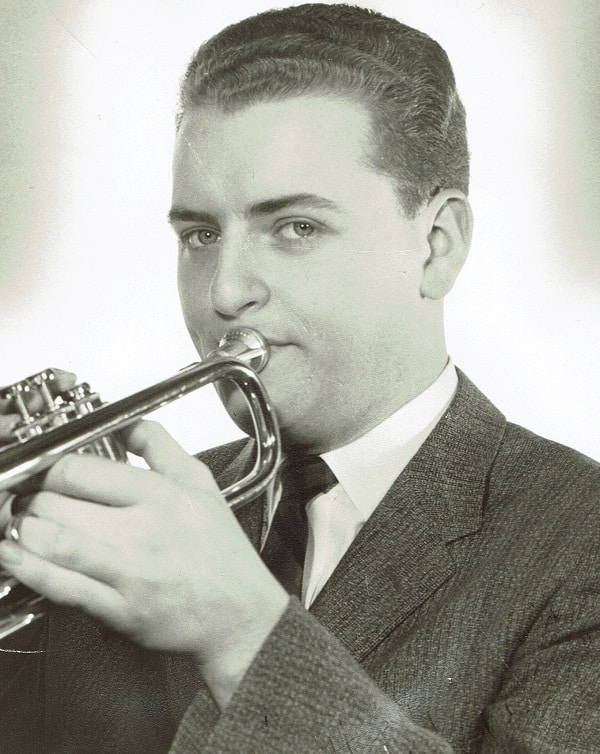The trumpet-like instrument came into my life in Montreal in 1944. I was seven, give or take. Dad thrust the cornet onto my lips and said simply, “blow”. I did, and it honked. Thankfully, musicians from our church band – The Salvation Army – took over and taught me how to make a truly musical sound – not just a goose honk – and how to play simple tunes. The written music fascinated me and, like navigating a maze, its complex, sometimes magical mysteries slowly unravelled.
Starting in 1946, and each summer for six years I studied performance and basic theory – how to read and play music – at the Salvation Army music camp. Sometime around 1951 I moved from cornet to tuba. In the summer of 1952 with Morley Calvert, a mentor from the SA band, as my coach, I learned how to play the sheet music he gave me, a tuba performance show-off and crowd-pleaser. Entitled Rocked in the Cradle of the Deep, it was also lesson in writing music – notes – which would cause the audience to hold their breath in anticipation of the extremely low and seemingly unreachable, final note. At the end of camp I played the solo for a live audience, and sensed the tension, then the relief when I finally hit the rock-bottom note. I began to understand the power of written music to move people.
Along with the 1952 Honour Student Award for excellence in performance and basic theory I received an invitation to teach tuba at the 1953 camp. My disappointment was palpable when I found out there were no further, more advanced, theory classes available to me. It felt more like an end than a beginning. Morley, now camp music director, again took me under his knowledgeable wing and cooked up a course to continue from where I had left off the previous year. He fed me my first real bowlful of music harmony, the building blocks of musical arranging: an art and craft, much like writing a play, when the playright decides what each character will do and say. The daily private theory lessons had my undivided attention.
In the fall of that same year Morley was my Westmount Junior High School music teacher and band conductor, so, naturally, I played tuba in the high school band.
Then, one September afternoon the phone rang. It was the McGill University Football Band manager. “Do you want to go to Toronto with the McGill Band next weekend?”
I thought it was a simple enough question, so of course I answered “yes.”
Mom was not so enthusiastic. “Toronto? With a college band? Wait just a minute! Where did you get our phone number?” she demanded.
“From our director, Morley Calvert.” came the answer. “He said Lloyd is a good player. We could really use him,” not knowing I wasn’t a college student, just a 15-year-old, grade 9, high school student.

A nightclub style publicity head shot of Lloyd Hiscock playing trumpet around 1958-9





FEDERICO B GIMENEZ4 years ago
Lloyd, I did not expect that the short story would be autobiographical. Before reading it and for having met you and becoming friends in the 1980s, we thought of you as a computer techie with a flair for music and a desire to develop yourself in that area. Now we know that music was really your first love and your first skill since childhood and also, we now know that you have really done well in this. Congratulations. You are so lucky and successful and all the credit belongs to you. How many people grow to be our age with never ever really being able to work in something that one loves? You are one of the few. Both Tita and I read your short story and loved it. We now realize that, in addition to your techie and music skill, you also have a very promising writing ability. What other surprises are you keeping for future disclosure? Thanks for sharing it with us. Fred Gimenez